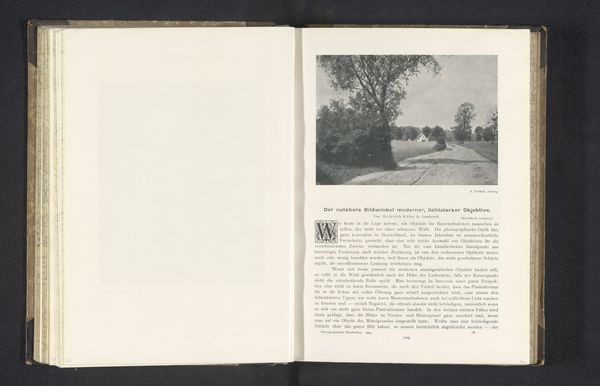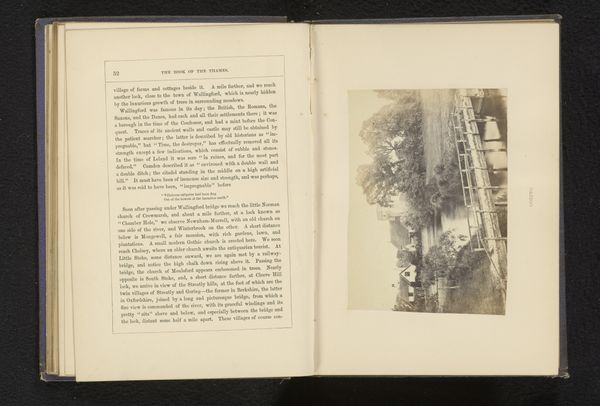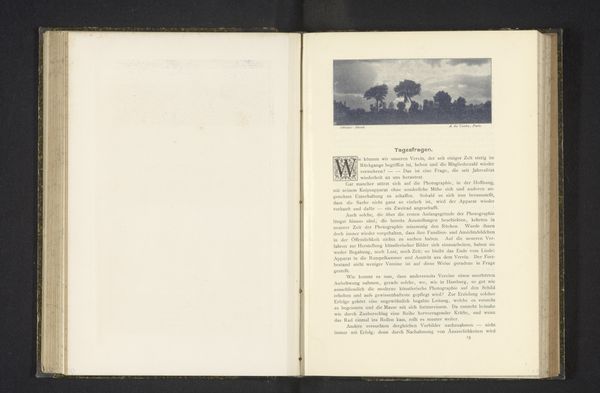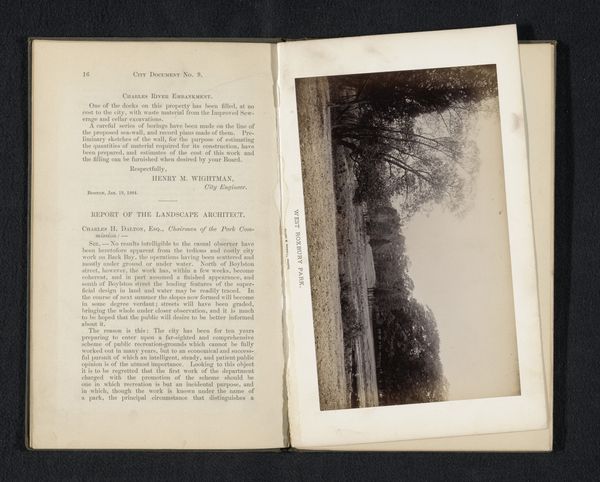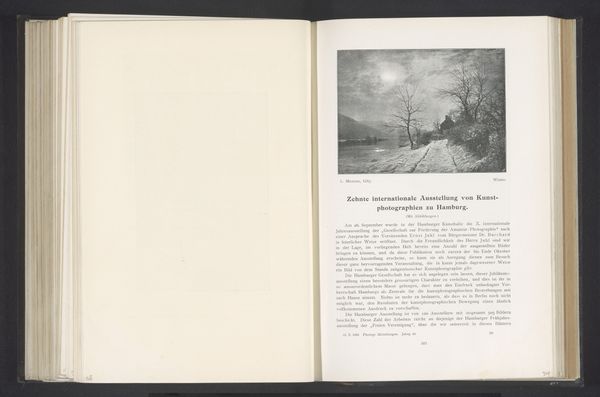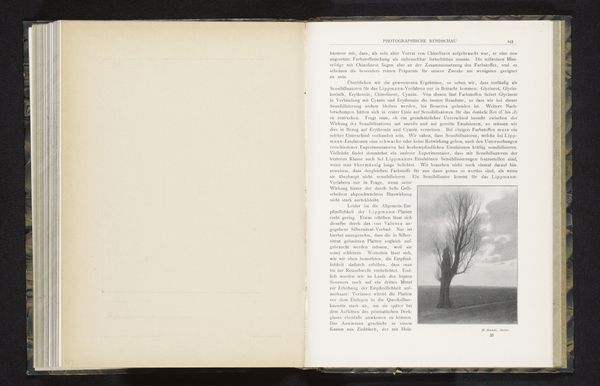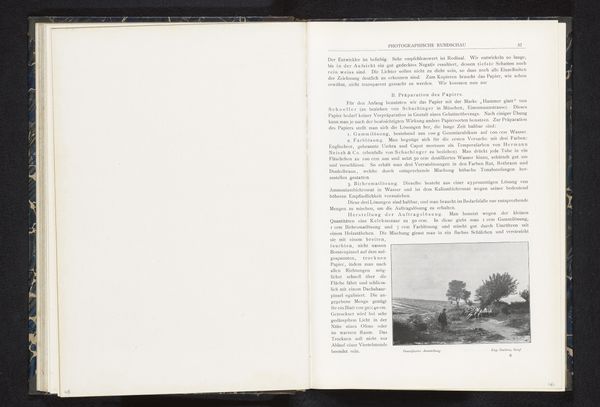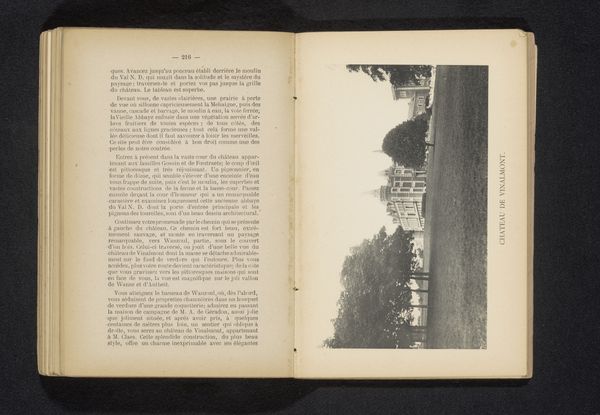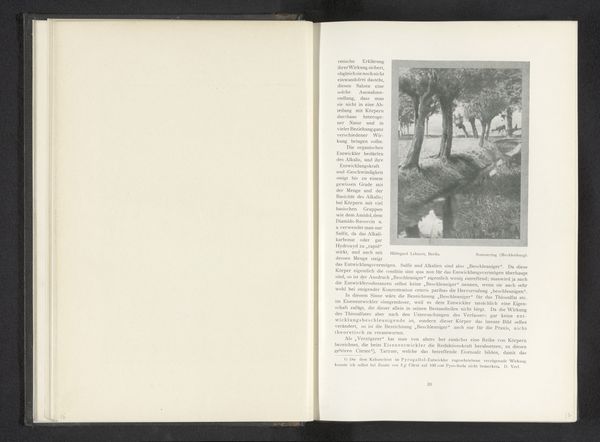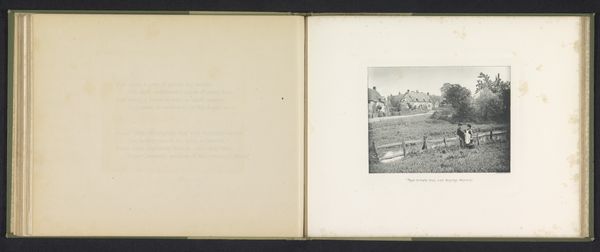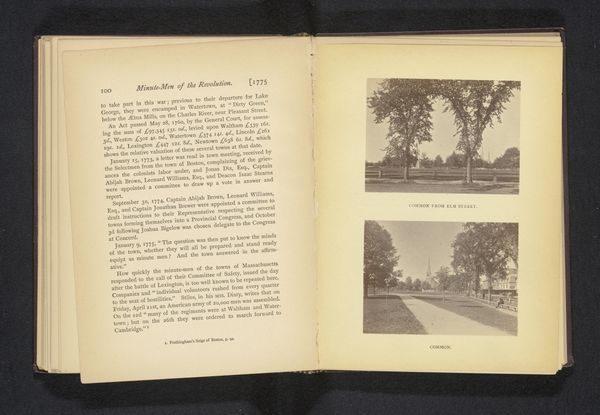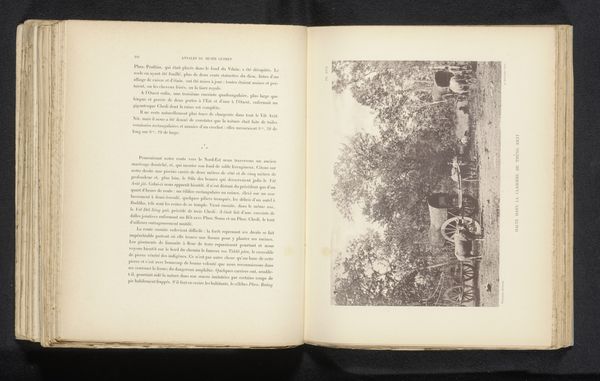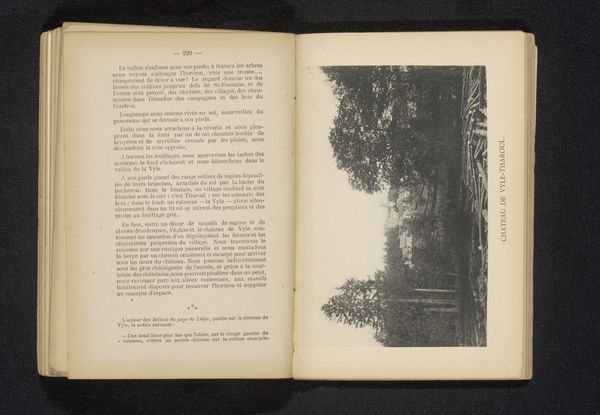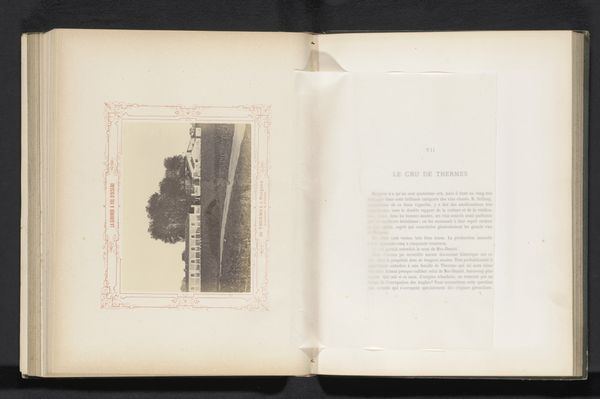
print, paper, photography, gelatin-silver-print
#
script typeface
#
aged paper
#
script typography
#
paperlike
# print
#
landscape
#
personal journal design
#
paper
#
photography
#
gelatin-silver-print
#
thick font
#
publication mockup
#
letter paper
#
paper medium
#
publication design
Dimensions: height 95 mm, width 125 mm
Copyright: Rijks Museum: Open Domain
Editor: This image is a gelatin silver print entitled "Landschap nabij de Nederrijn," or "Landscape near the Lower Rhine," by Otto Scharf, dating from before 1903. It seems to be a photograph reproduced in a book. What stands out to me is the way the image of the landscape is contextualized by its printed surroundings, which adds to the overall impact. How do you see this piece? Curator: What's compelling is the interplay between the photographic landscape and the technologies of its reproduction and circulation. It's not just about the scenery itself, but the means by which that image reaches an audience. Consider the paper, the ink, the printing process – all industrial products shaping our experience of nature. Editor: So, you are saying the process itself is part of the meaning? Curator: Exactly! And we have to consider the intended audience. The text surrounding the photograph— the layout, the typography--suggests this image wasn't simply intended for aesthetic appreciation but also perhaps for scientific observation or study, thus engaging intellectual labour of a very specific kind. What assumptions were made about the skills and interests of this reader? Editor: Interesting. I initially focused on the romantic, almost nostalgic quality of the landscape, but you've made me think about the social and material conditions that allowed this image and this "idea of the natural" to be manufactured and circulated in the first place. Curator: Precisely. What sort of labour went into the production of that 'romantic' ideal, and whose labour was it? This helps us question conventional boundaries, don't you agree? Editor: Yes, this certainly encourages us to reconsider the traditional notions and material dimensions and how intertwined the two truly are. Thanks for your insight!
Comments
No comments
Be the first to comment and join the conversation on the ultimate creative platform.
